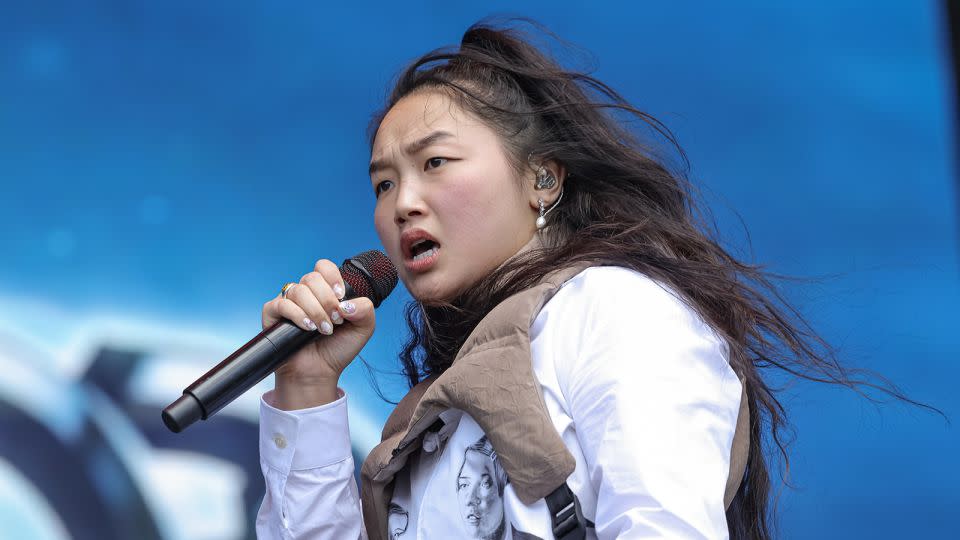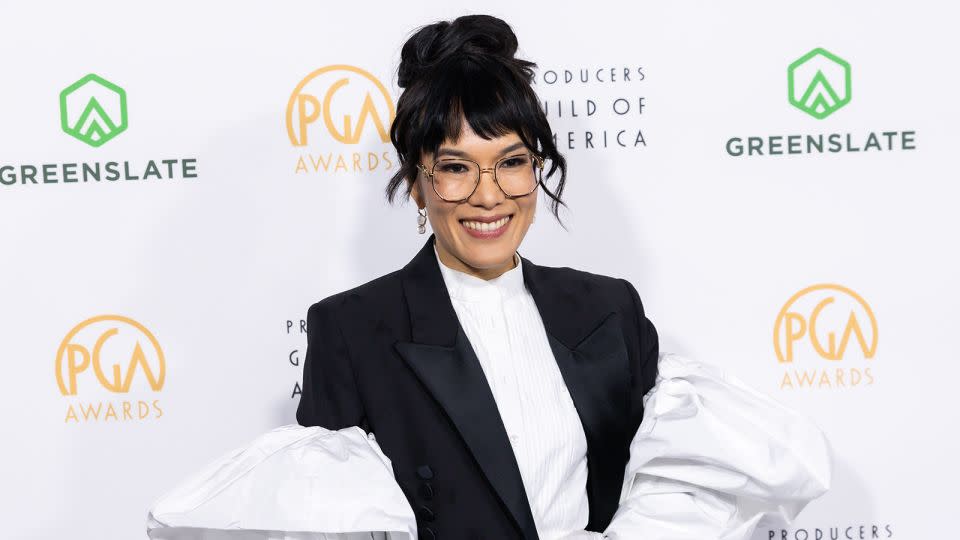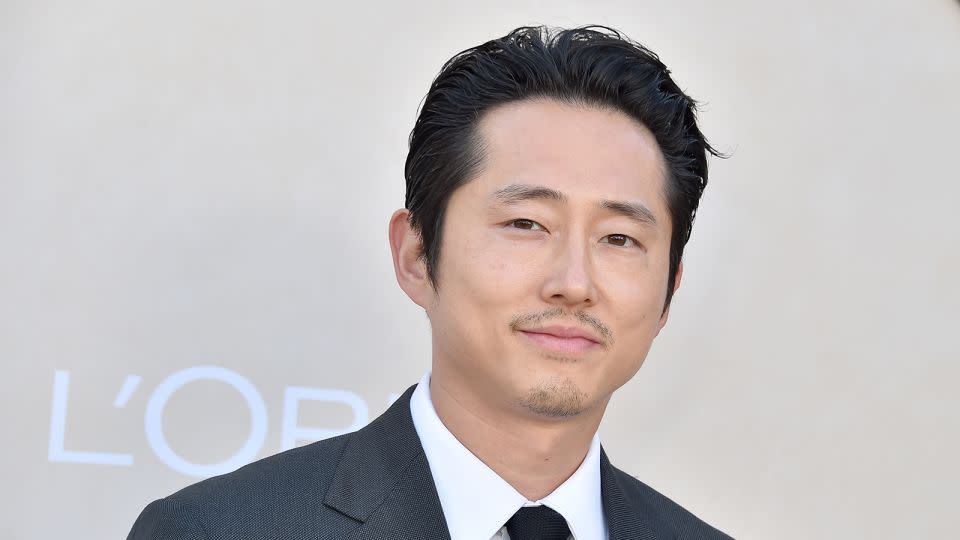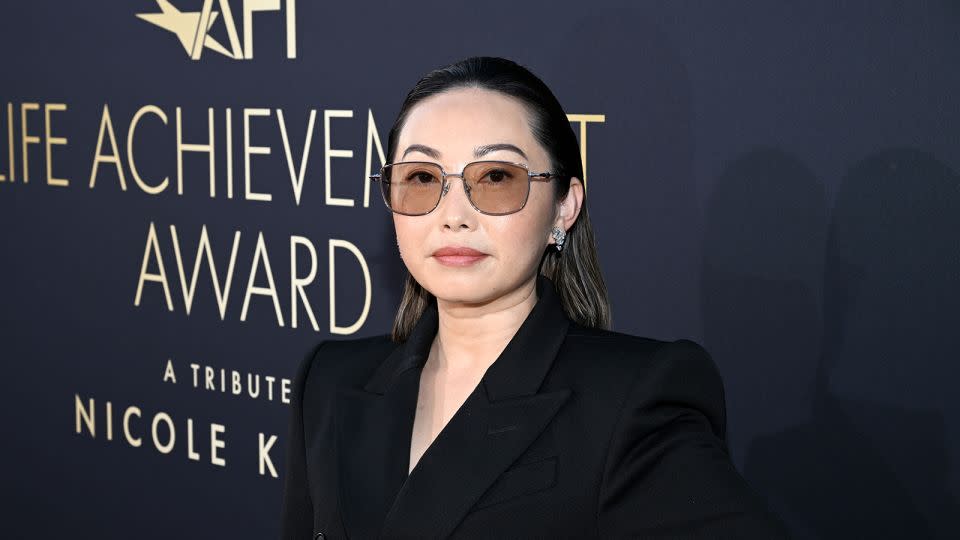Opinion: May is the month when we honor Asian Americans. Here’s what a lot of people get wrong
Editor’s Note: Regina Kim is a freelance writer focusing on Korean pop culture and the AAPI community. She is a Forbes contributor and has written for Vanity Fair, Rolling Stone, HuffPost and other news outlets. Follow her on Instagram (@curious_idealist) and Twitter/X (@ReginaEKim). The views expressed here are her own. Read more opinion on CNN.
As we near the end of Asian American, Native Hawaiian and Pacific Islander (AANHPI) Heritage Month, I can’t help but feel a bit disappointed. May is meant to be a month when the media takes greater interest in our community and when Asian American creatives get more of the attention they’re due.

But too often, efforts to honor the contributions of Asian Americans, however well-intentioned, fall short because people fail to differentiate between Asian Americans and Asian communities outside the US. Many outlets don’t seem to know that the second “A” in “AANHPI” stands for American.
Case in point: This year, Billboard featured South Korean-born DJ-producer Peggy Gou — who was raised in Europe and is currently based there — on the cover of its inaugural “AAPI” issue. Some weeks later, the publication compiled a list of 10 Billboard chart achievements by various Asian artists “in honor of AAPI Heritage Month.”
While the list contains notable Asian acts like Psy (of “Gangnam Style” fame) and K-pop sensation BTS, only one of them — Mark Tuan of the K-pop group GOT7 — is actually Asian American.

Another example can be found on the site GRAMMY.com, which released what it called a “genre-spanning playlist” to “celebrate AAPI artists.” However, most of the artists are not from America, but from Asia — like the South Korean K-pop boy band ATEEZ. Or they’re Europeans with Asian heritage like the Icelandic singer-songwriter Laufey.
In short, media outlets often end up highlighting Asians who’ve spent all or most of their lives anywhere but the US.
This issue is not a pet peeve for me alone. Journalist Daniel Anderson recently wrote an essay for the Asian American news site JoySauce in which he discussed Billboard’s inclusion of Peggy Gou.
In the piece, he also explains why conflating Asian Americans with other Asian groups is so problematic, rightly stating that “each community possesses its own cultural and communal nuances deserving celebration without misrepresentation.”

And it’s not just digital and print publications that often get AANHPI Heritage Month wrong. Take this television segment in honor of AANHPI Heritage Month that ”Good Morning America” aired last year about the booming interest in Korean language.
As K-culture blogger Kat Turner pointed out in her incisive critique, the segment didn’t include a single person from the AANHPI community. It centered instead on two White women who talked about their experiences with learning Korean, and Hyunwoo Sun, the South Korean CEO and co-founder of the popular Korean language learning platform Talk To Me In Korean.
“Imagine,” Turner wrote, “if the story had featured Korean Americans learning a language that has been lost to them.” It was a missed opportunity to delve into an important issue by putting Korean Americans at the center of the narrative.

These are but a few instances of American media’s multiple botched attempts at celebrating the AANHPI community. Using AANHPI Heritage Month to celebrate Asian creatives outside the US — or worse, people who don’t even have Asian heritage but only happen to be fascinated with Asian languages and cultures — is like presenting an award to someone who wasn’t even nominated, or voting for a political candidate who wasn’t on the ballot.
Of course, it doesn’t help that AANHPIs are oftentimes so invisible in American media that it seems like many US news outlets are unwilling to put in the extra legwork to look for Asian representation right here at home.
A recent study by the Asian American Foundation found that over half of Americans can’t name a single famous Asian American. The name most commonly cited among respondents was Jackie Chan, who isn’t even Asian American. (He’s from Hong Kong.) Another celebrity who’s commonly mislabeled as Asian American is Oscar-winning Chinese-Malaysian actress Michelle Yeoh.

Failing to distinguish between Asian Americans and Asians living in Asia (or Asian diasporas outside the US) creates a situation in which Asian Americans are seen as perpetual foreigners here in the US, lumped together with Asians from abroad.
When the media chooses to highlight Asian folks outside the US during a month dedicated to the achievements of Asian Americans, it results in countless lost opportunities to highlight and elevate the accomplishments of the AANHPI community. This may be one reason why so many Americans can’t name any Asian Americans of note.

America is a place where the headline-grabbing achievements of overseas Asians — like K-pop superstars BTS and Blackpink, Emmy winner Lee Jung-jae of “Squid Game,” Oscar-winning director Bong Joon Ho of “Parasite” fame and many others — often eclipse homegrown Asian talent.
The media needs to make a conscientious effort to seek out, identify and spotlight Asian Americans — and not just during AANHPI Heritage Month. But the month of May affords the opportunity to celebrate the accomplishments of countless members of the Asian American community, like Chinese-American filmmaker Lulu Wang, who directed the poignant Golden Globe-nominated film “The Farewell.”
Or Indian-American icon Mindy Kaling, who — among her many other accomplishments — starred in the hit show “The Office” (which she also helped write and direct) and created popular shows like “The Mindy Project” and “Never Have I Ever.”
Or Korean-American actor Steven Yeun, best known for his starring roles in “The Walking Dead” franchise and the Emmy Award-winning series “Beef” as well as critically acclaimed work for the big screen.
And let’s not forget some of the biggest names in music like Bruno Mars and Olivia Rodrigo, indie darlings like Mitski and Japanese Breakfast and rising stars like Sarah Kinsley, keshi, Lyn Lapid and Audrey Nuna.
Come next May, I hope more media realize that there’s no reason to look overseas to spotlight Asian talent, when there’s such an abundance of it right here in America.
For more CNN news and newsletters create an account at CNN.com

